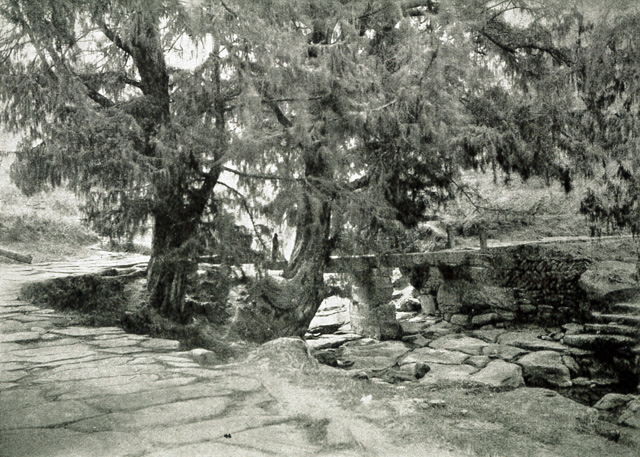|
Australia China Friendship Society (澳中友好协会)
Talk on 17 April, 2013:
David Jupp has kindly agreed to speak on the 17 April at the Southern Cross Club at Jamison at 7.30 pm, on the following topic: "Alexander Wylie’s journey from Chengdu to Hanzhong in 1868; and the road today."
Title
Alexander Wylie’s journey from Chengdu to Hanzhong in 1868; and the road today.
Abstract
In April 2009, David Jupp gave a talk to the ACC on China’s Shu Roads. These ancient roads had been subjects of a (then) recently completed project supported by the Australia China Council that had promoted cooperation with Hanzhong Museum. At that time it was also not quite a year after many relic sites on the track of the ancient roads between Xi’an and Chengdu had been affected by the 512 Sichuan earthquake.
In 2012, David Jupp travelled between Chengdu and Hanzhong and along some linking roads from Hanzhong in the direction of Hankou. The purpose was partly to follow the path of a western explorer-missionary on the Shu Road, Alexander Wylie, who went this way in 1869 and reported his travels in the Journal of the prestigious London Geographical Society in 1870. But Wylie’s details and place names needed some checking. Another good reason was to join people from the Hanzhong Museum taking inventory of Shu Road relics as part of China’s intended application for World Heritage Listing of the Shu Roads. It was also great fun.
This talk adds a little to the previous talk; it introduces Alexander Wylie, and provides an update to the changes that have come about in northern Sichuan since 512 – such as the development of relics into history theme parks. In 1868, Wylie believed he was the first European to visit some of the places along the road since Marco Polo. In fact he was wrong, as Catholic Priests had been passing this way since at least 1703. We also visited the relic site of a Catholic mission at Guluba near Hanzhong which Wylie passed by, little realising it had been the site of a Catholic church since the mid-1600’s. Possibly thankfully, this has not become a history theme park, but still bears aging slogans extolling the social virtues of education and family planning.
But none of this reduces the significance of Wylie’s visit as Wylie opened the Han River route to Hanzhong and Sichuan from Hankou on the Yangtze that was followed by many other (Protestant) Missionaries in the years that followed. But the years that followed were not easy for Chinese as we find out from another intrepid westerner (Sir Eric Teichman) who visited Hanzhong in 1917 via Guluba. How such early western travellers felt about China provides a very different view of Chinese but, taken together with independent experiences of China and strong smelling salts there is much to be learned from them.
Web Site:
The Shu Roads and the former project, as well as documents written about Alexander Wylie and the field visit in June 2012, are all to be found on the Qinling Shu Roads Web page HERE. Suggestions are to look under:
June 2012 Field Notes & Reports
You are welcome to visit the site and check out the things that have happened since 2009. Of course, a visit to the web site is nothing like as interesting as coming to the talk and venue provided by the Australia China Friendship Association on April 17. [The Talk has now, of course, been held but you can access it material in the PDF file available HERE ].
Bio Sketch (about the speaker)
David Jupp was born in 1943 in Perth, WA and moved to Adelaide with his family where he went to secondary school and University. After some moving around he spent 33 years as a Research Scientist with CSIRO, based in Canberra, where he happily worked on satellite, airborne and ground based remote sensing, GIS and image processing. He is married to Pam and they have two daughters, Amanda and Lynsey, who grew up in Canberra and now (after a few years overseas) settling down in Australia. He retired in 2009 but still engages a number of remaining projects and interests in Chinese history and relics. The activity associated with China projects has been collected together on a web site where much of the background to the present talk can be found. It is at: http://www.QinShuRoads.org/.
|
